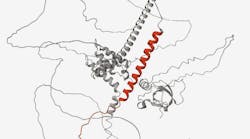Researchers at Michigan Medicine have devised a new biomarker-based strategy to screen for a rare and deadly complication caused by monoclonal antibodies used to treat several cancers.
In a study published in JACC: CardioOncology, investigators found that nearly all patients with cancer who were diagnosed with myocarditis after being treated with immune checkpoint inhibitors had early signs of muscle destruction and liver damage.
Researchers analyzed more than 2,600 patients with cancer treated with immune checkpoint inhibitors at University of Michigan Health between June 2014 and Dec. 2021. The vast majority of patients diagnosed with ICI myocarditis also had early signs of muscle injury and liver damage, even prior to hospitalization. Of these patients, 95% had at least three elevated biomarkers, compared to just 5% of patients without myocarditis.
Among non-cardiac biomarkers, creatine phosphokinase, which signals muscle injury, was most strongly linked to the development of ICI myocarditis, as well as all-cause death.





